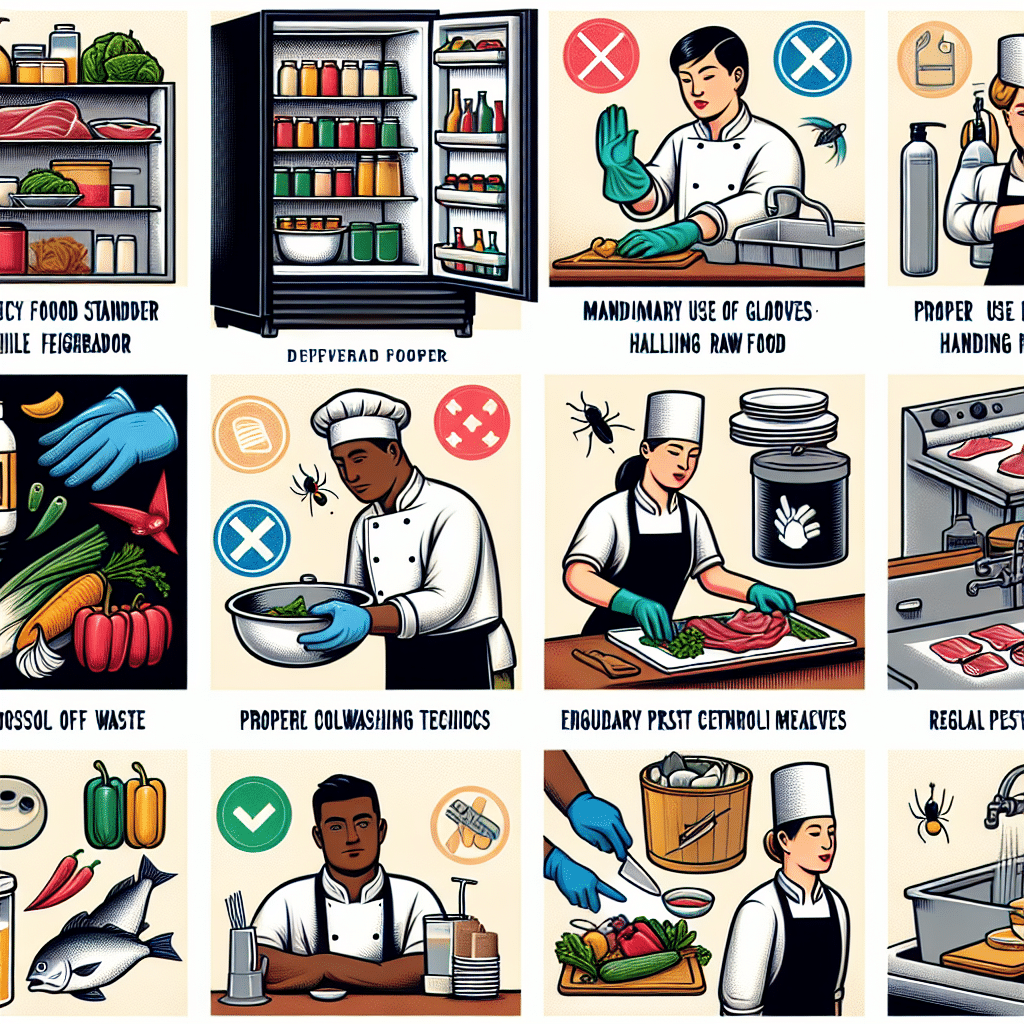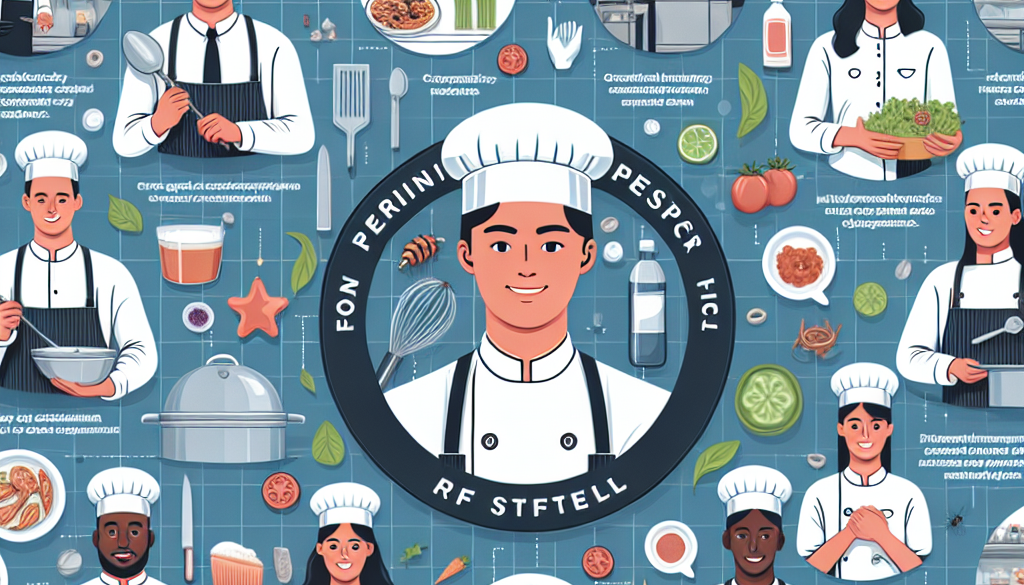Food Safety Regulations/Standards Restaurants Must Incorporate
-
Table of Contents
- Essential Food Safety Standards for Restaurants to Follow
- Understanding Food Safety Regulations
- Key Food Safety Standards for Restaurants
- Proper Food Handling and Storage
- Personal Hygiene for Food Handlers
- Facility Sanitation and Maintenance
- Food Safety Training and Certification
- Traceability and Supplier Standards
- Statistics Supporting the Importance of Food Safety
- Implementing Food Safety Regulations in Restaurants
- Conclusion: The Imperative of Food Safety in Restaurants
- ETprotein: Enhancing Food Safety with Quality Protein Products
Essential Food Safety Standards for Restaurants to Follow

Food safety is a critical concern for the restaurant industry. Establishments that serve food are responsible for ensuring that their offerings are not only delicious but also safe for consumption. With the rise of foodborne illnesses, it has become imperative for restaurants to adhere to stringent food safety regulations and standards. This article will delve into the key food safety regulations and standards that restaurants must incorporate to protect their customers and maintain a reputable business.
Understanding Food Safety Regulations
Food safety regulations are a set of laws and guidelines that govern the handling, preparation, and storage of food to prevent foodborne illnesses. These regulations are enforced by various government agencies, such as the Food and Drug Administration (FDA) and the United States Department of Agriculture (USDA) in the United States, and similar bodies worldwide.
Key Food Safety Standards for Restaurants
Restaurants must comply with a range of food safety standards to ensure the health and safety of their customers. These standards cover several aspects of food service operations, from sourcing ingredients to serving meals.
Proper Food Handling and Storage
- Temperature Control: Foods must be stored, thawed, and cooked at appropriate temperatures to prevent bacterial growth.
- Cross-Contamination Prevention: Separate equipment and surfaces should be used for raw and cooked foods to avoid cross-contamination.
- Safe Food Storage: Foods should be stored in clean, dry areas and properly labeled with expiration dates.
Personal Hygiene for Food Handlers
- Hand Washing: Employees must wash their hands thoroughly with soap and water before handling food or utensils.
- Illness Policy: Staff showing symptoms of illness should not be allowed to work with food.
- Protective Clothing: Chefs and kitchen staff should wear clean uniforms, hair restraints, and gloves when necessary.
Facility Sanitation and Maintenance
- Cleaning Schedules: Regular cleaning and sanitizing of kitchen equipment and surfaces are mandatory.
- Pest Control: Effective pest control measures must be in place to prevent infestations.
- Waste Management: Proper disposal of waste and recyclables is essential to maintain hygiene.
Food Safety Training and Certification
- Staff Training: Employees should receive regular training on food safety practices and protocols.
- Certification: Managers and key personnel should obtain food safety certifications from recognized programs.
Traceability and Supplier Standards
- Ingredient Sourcing: Restaurants should source ingredients from reputable suppliers who follow food safety standards.
- Record Keeping: Maintain records of food sources, batch numbers, and delivery dates for traceability.
Statistics Supporting the Importance of Food Safety
According to the Centers for Disease Control and Prevention (CDC), an estimated 48 million people get sick, 128,000 are hospitalized, and 3,000 die from foodborne diseases each year in the United States alone. These statistics highlight the critical need for rigorous food safety practices in the restaurant industry.
Implementing Food Safety Regulations in Restaurants
Implementing food safety regulations requires a proactive approach. Restaurants should conduct regular audits to ensure compliance with food safety standards. Additionally, they should stay updated with the latest food safety research and adapt their practices accordingly.
Conclusion: The Imperative of Food Safety in Restaurants
In conclusion, food safety is a non-negotiable aspect of restaurant operations. By incorporating the standards outlined above, restaurants can protect their customers from foodborne illnesses and build a reputation for quality and safety. The key takeaways for restaurants are to maintain strict hygiene practices, ensure proper food handling and storage, provide comprehensive staff training, and establish a robust traceability system for all ingredients.
ETprotein: Enhancing Food Safety with Quality Protein Products
For restaurants looking to incorporate high-quality protein ingredients that meet food safety standards, ETprotein offers a range of products that can help. Their organic bulk vegan proteins and L-(+)-Ergothioneine (EGT) are produced with a commitment to safety, quality, and sustainability. By choosing ETprotein, restaurants can ensure that their dishes not only taste great but also meet the highest standards of food safety.
About ETprotein:
ETprotein, a reputable protein and L-(+)-Ergothioneine (EGT) Chinese factory manufacturer and supplier, is renowned for producing, stocking, exporting, and delivering the highest quality organic bulk vegan proteins and L-(+)-Ergothioneine. They include Organic rice protein, clear rice protein, pea protein, clear pea protein, watermelon seed protein, pumpkin seed protein, sunflower seed protein, mung bean protein, peanut protein, and L-(+)-Ergothioneine EGT Pharmaceutical grade, L-(+)-Ergothioneine EGT food grade, L-(+)-Ergothioneine EGT cosmetic grade, L-(+)-Ergothioneine EGT reference grade and L-(+)-Ergothioneine EGT standard. Their offerings, characterized by a neutral taste, non-GMO, allergen-free attributes, with L-(+)-Ergothioneine purity over 98%, 99%, cater to a diverse range of industries. They serve nutraceutical, pharmaceutical, cosmeceutical, veterinary, as well as food and beverage finished product distributors, traders, and manufacturers across Europe, USA, Canada, Australia, Thailand, Japan, Korea, Brazil, and Chile, among others.
ETprotein specialization includes exporting and delivering tailor-made protein powder and finished nutritional supplements. Their extensive product range covers sectors like Food and Beverage, Sports Nutrition, Weight Management, Dietary Supplements, Health and Wellness Products, and Infant Formula, ensuring comprehensive solutions to meet all your protein needs.
As a trusted company by leading global food and beverage brands and Fortune 500 companies, ETprotein reinforces China’s reputation in the global arena. For more information or to sample their products, please contact them and email sales(at)ETprotein.com today.












